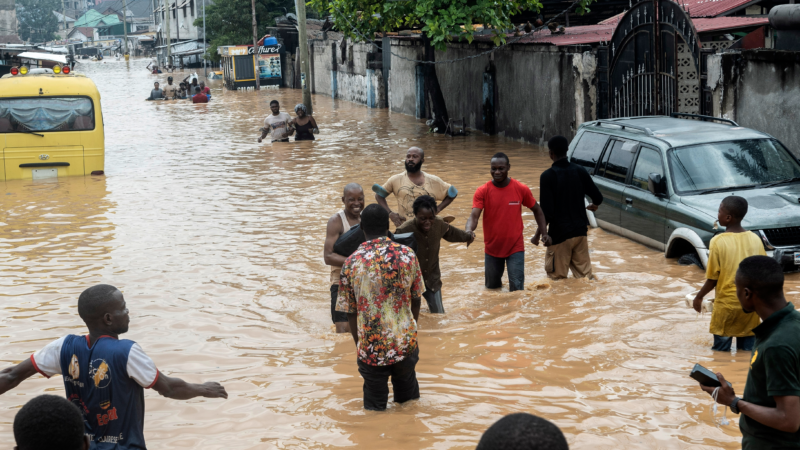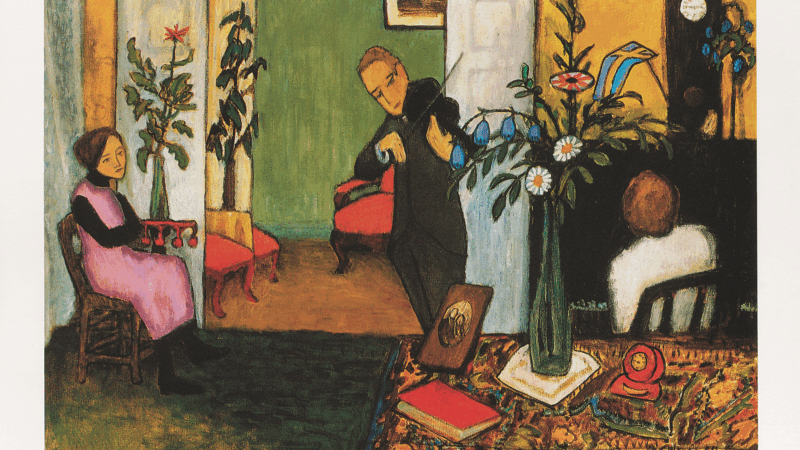Flooding death toll in Congo’s capital reaches 33 as officials race to help victims
KINSHASA, Congo — The death toll from flooding that cut access to over half of the Congolese capital of Kinshasa reached 33 as authorities raced Monday to evacuate and support hundreds of families trapped in their homes.
Ten more people were confirmed dead as of Sunday evening, in addition to the 23 people killed the day before, Congolese Interior Minister Jacquemin Shabani said on state television late Sunday.
Heavy rains began last week, causing the key Ndjili River to overflow on Friday and submerge hundreds of buildings.
While the situation had improved by Monday morning, some access roads remained blocked and vehicular traffic was limited.
Many residents blamed the government for not responding quickly enough to the disaster.
“We lost everything and left everything behind,” said Marie Nzola, one of those whose properties were destroyed. “The rain caught us by surprise late at night.”
Officials said Sunday that most of the fatalities were caused by walls that collapsed shortly after the deluge began.
The main road to the airport, which also links Kinshasa to the rest of Congo, was damaged by the flooding but will be open to all traffic within 72 hours, Kinshasa Gov. Daniel Bumba said over the weekend.
The flooding has also hampered access to drinking water in at least 16 communes after water facilities were affected, the Congolese interior ministry said in a statement.
The government has set up at least four emergency shelters that were catering to hundreds of displaced families across the city, the ministry said.
Resident Clément Matwidi, one of those affected by the flooding, expressed frustration and asked the government for more support. “Everything is lost due to the floods (and) we are here waiting for the government’s decision,” he said.
In 2022, at least 100 people were killed during similar flooding in Kinshasa.
The disaster comes as the government is battling a humanitarian disaster in the east of the country, more than 2,600 kilometers (1,600 miles) from Kinshasa, where decades of fighting with rebels escalated in February, worsening what is already one of the world’s largest humanitarian crises.
‘Bomb cyclone’ forecasted to bring heavy snow, blizzard conditions and dangerous travel
A 'bomb cyclone' is intensifying severe winter weather for millions of people across the U.S. The system is expected to knock out power and disrupt holiday travel.
Russia sends 3 Iranian satellites into orbit, report says
The report said that a Russian rocket sent the satellites on Sunday from a launchpad in eastern Russia.
Viral global TikToks: A twist on soccer, Tanzania’s Charlie Chaplin, hope in Gaza
TikToks are everywhere (well, except countries like Australia and India, where they've been banned.) We talk to the creators of some of the year's most popular reels from the Global South.
This painting is missing. Do you have it?
An important work from a rediscovered artist has been absent from public view since the 1970s. A New York curator is hunting for it.
Memory loss: As AI gobbles up chips, prices for devices may rise
Demand for memory chips currently exceeds supply and there's very little chance of that changing any time soon. More chips for AI means less available for other products such as computers and phones and that could drive up those prices too.
Brigitte Bardot, sex goddess of cinema, has died
Legendary screen siren and animal rights activist Brigitte Bardot has died at age 91. The alluring former model starred in numerous movies, often playing the highly sexualized love interest.








